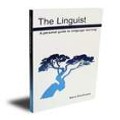Just as with genes, human culture has passed from generation to generation, its form and content constantly evolving. Like the genetic makeup of people, human culture is universal despite its variations. The source of world culture is everywhere the same: human creativity. Twenty-five hundred years ago, philosophers in China, India and Greece dealt with the same human issues as we do now, and their thoughts are readily understood by people of many different cultures today.
In fact, a closer study of the thoughts of Heraclitus, Zhuangzi, and Buddha show remarkable similarities between them. Their philosophies are not just accessible to Greeks, Chinese or Indians. These thinkers have had an influence that greatly exceeded their time and country. The explanations that humans have sought to solve the riddles of human existence are universal. It is precisely this universality of human thought and feeling that makes learning foreign languages such a natural and rewarding adventure.
All cultures are connected. The ancient civilizations of the Middle East spawned a literary revolution that dramatically influenced the course of history. The Semitic alphabet, the mother of all alphabets, indirectly made possible Greek and Indian philosophical writings and the books of the great religions. As thoughts were written down, it became possible for others to read them, ponder them and comment on them. Chinese writing had the same effect on East Asian cultures. It is on these foundations that the modern world is built.
In more recent times, the development of European science and the industrial revolution were dependent on Chinese technology, Indian mathematics and Arabic cultural influence. Religions created in the Middle East and India dominate the world, while much of the world's popular music is influenced by African rhythms. Our modern world is the result of an ongoing process of cultural creativity and interaction that started with the first humans. Migration, trade, conquest, cultural exchange, cultural synthesis and assimilation have been the constant pattern of history on all continents. Globalization is not a recent phenomenon, it is just that the speed and the scale have increased as modern communications have shrunk the globe.

